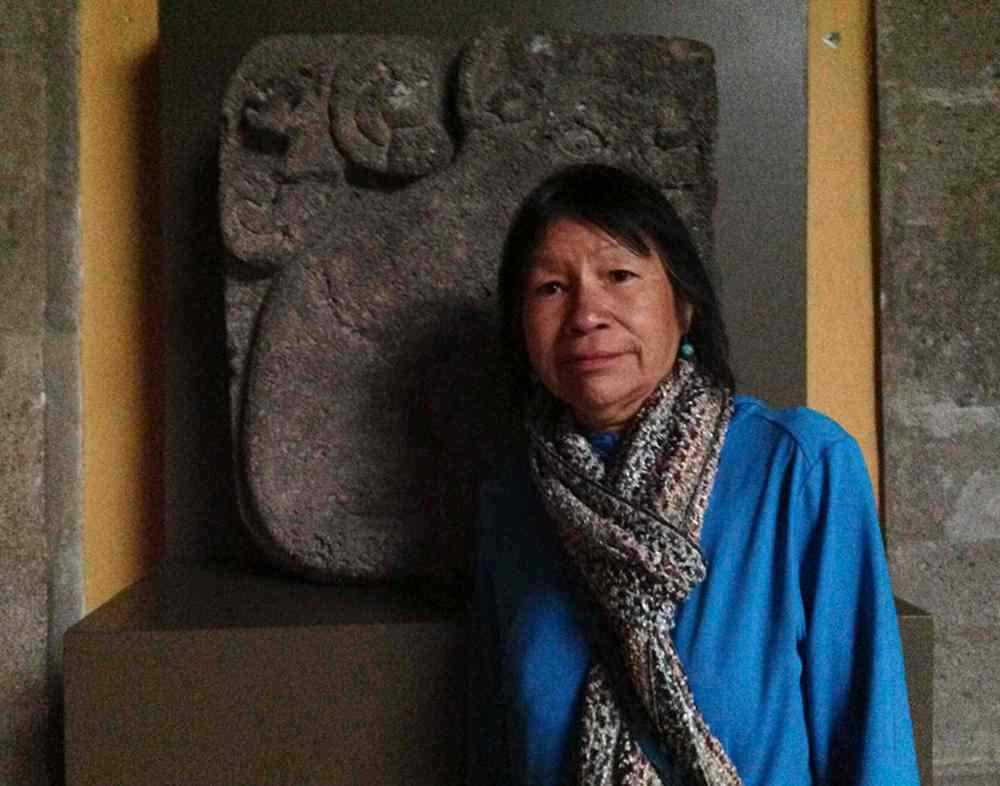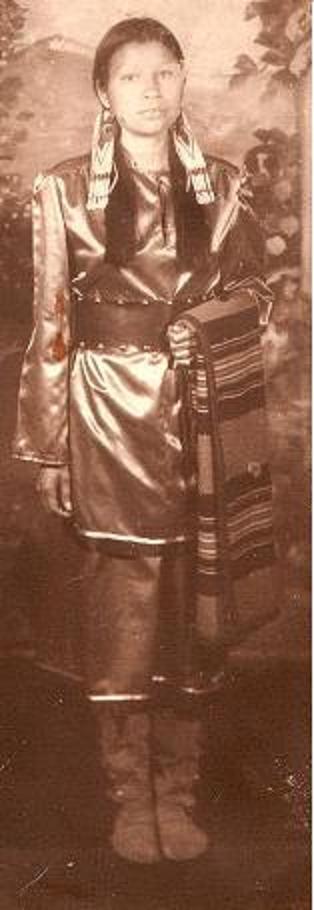Cree nurse was inspiration for willingness to share story, help others
Advertisement
Read this article for free:
or
Already have an account? Log in here »
To continue reading, please subscribe:
Monthly Digital Subscription
$0 for the first 4 weeks*
- Enjoy unlimited reading on winnipegfreepress.com
- Read the E-Edition, our digital replica newspaper
- Access News Break, our award-winning app
- Play interactive puzzles
*No charge for 4 weeks then price increases to the regular rate of $19.00 plus GST every four weeks. Offer available to new and qualified returning subscribers only. Cancel any time.
Monthly Digital Subscription
$4.75/week*
- Enjoy unlimited reading on winnipegfreepress.com
- Read the E-Edition, our digital replica newspaper
- Access News Break, our award-winning app
- Play interactive puzzles
*Billed as $19 plus GST every four weeks. Cancel any time.
To continue reading, please subscribe:
Add Free Press access to your Brandon Sun subscription for only an additional
$1 for the first 4 weeks*
*Your next subscription payment will increase by $1.00 and you will be charged $16.99 plus GST for four weeks. After four weeks, your payment will increase to $23.99 plus GST every four weeks.
Read unlimited articles for free today:
or
Already have an account? Log in here »
Hey there, time traveller!
This article was published 08/01/2015 (3974 days ago), so information in it may no longer be current.
A pillar of Winnipeg’s indigenous community is being mourned this week.
Lyna Hart, 60, was a Cree nurse whose childhood time in a residential school was one of two survivor stories in the 2012 documentary We Were Children.
She died in her sleep from a heart condition while on a trip to Minneapolis last weekend.

Hart was well-known for her administration of various indigenous health-care programs with the Southeast Resource Development Council, where she worked for more than a decade until about four years ago.
Her health had failed since then and she endured numerous stays in hospital and encountered financial struggles.
Her family said her last two years were stressful and likely added to a pre-existing heart condition, which was confirmed in an autopsy.
A member of Nisichawayasihk Cree Nation, 665 kilometres northwest of Winnipeg, Hart lectured on indigenous issues at conferences and travelled widely.
She and her ex-common-law partner, Vernon Bellecourt, a co-founder of the American Indian Movement, had two children: Raven and Blackwolf. Hart had an older son, John Paul Martin, before that and she also raised her partner’s three children. Although she and Bellecourt two separated, they remained close until his death at age 75 in 2007.
The New York Times and the Washington Post both ran obituaries, with the Times describing Hart’s former partner, Bellecourt, as “an Ojibwa Indian who waged a long campaign for native rights, most visible in battling the use of Indian nicknames by sports teams.” His funeral counted indigenous revolutionaries as pallbearers.
Hart carried traditional names from the Oneida, Ojibway and Nahuatl (Aztec) cultures. The one from the Oneida culture best described her outreach services, her daughter, Raven Hart-Bellecourt, said Wednesday.
“That name was Shay Yah Tah Honaay. It meant ‘She who builds a road.’ My auntie said ‘Your mom always led the way, she taught us our culture.’
“Her home was always ceremony-ready. We always had a home that was safety and warmth. She was a beautiful, resilient woman.”
Her son, Blackwolf Hart-Bellecourt, and Hart’s brother Kevin Hart, were escorting her body back to Winnipeg Wednesday.
A procession into the city was tentatively scheduled for about 6 p.m. Wednesday, when it was anticipated the hearse carrying Hart would reach the Perimeter Highway at Pembina Highway.

An all-night wake is planned for Thunderbird House on Main Street tonight, beginning at 7 p.m., followed by a traditional indigenous ceremony to honour her life. The service is to begin Friday at noon. Hart is expected to be honoured with one of the traditional Ojibway culture’s highest honours for women, as an ogichida kwe (warrior woman).
Her daughter said Hart’s remains are to be cremated; her ashes scattered on sun dance grounds in North America and ceremony grounds she visited from Mexico to Japan.
Hart was remembered on countless Facebook posts as a woman whose footsteps traced a map from the shameful history of residential school to the American Indian political-rights movement of the 1970s and the vibrant indigenous cultural renaissance that followed it.
“The legacy of residential school leaves many unanswered questions for so many of us,” Assembly of Manitoba Chiefs Grand Chief Derek Nepinak wrote in an email Wednesday.
“Often, the tragedies that unfolded for so many of our family members are left unsaid and healing is denied not only to the residential school survivor, but also the siblings and children of the survivor. This was not the case with Lyna Hart.
“She was brave, courageous and demonstrated tremendous strength in her commitment to step forward and tell her story. Her strength grew from her love and respect for our ceremonies, our cultural ways, our history and will stand as a testament to the resilience of indigenous peoples, families and our respective nations,” Nepinak said.
alexandra.paul@freepress.mb.ca
History
Updated on Thursday, January 8, 2015 7:20 AM CST: Changes headline, adds photos
Updated on Thursday, January 8, 2015 8:16 AM CST: Adds videos
Updated on Thursday, January 8, 2015 11:32 AM CST: Corrects that "Hart had an older son, John Paul Martin, before that and she also raised her partner’s three children. Although she and Bellecourt two separated, they remained close until his death at age 75 in 2007."

